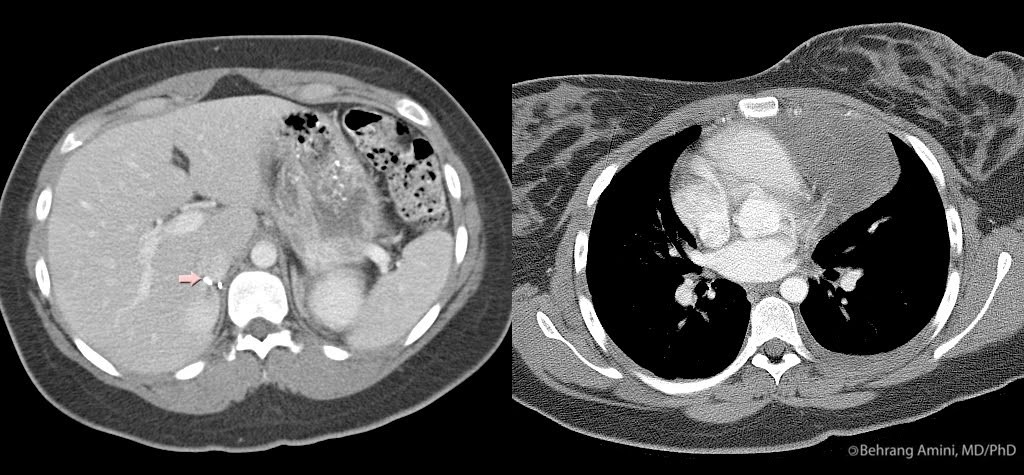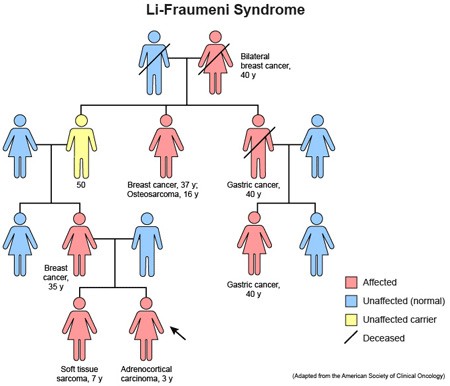Li-Fraumeni syndrome, (LFS) is an inherited cancer syndrome, conferring an increased risk of (mainly) soft tissue sarcomas, osteosarcomas, pre-menopausal breast cancer, brain tumors and carcinoma of the adrenal cortex (ACC). Though much less common, melanoma, germ cell tumors, gastric carcinomas and Wilms tumors have also been described in patients with LFS. The mean age of onset of malignancy in LFS patients is typically between 20 and 45 years old, being at least 2 to 3 decades earlier compared to the general population for these cancers.
Li-Fraumeni syndrome – TP53 gene


The syndrome is inherited in an autosomal dominant manner and is caused by mutations in the TP53 gene, coding for the protein p53. The p53 protein is present in all tissues and interacts with the DNA of the cells, playing an important role in the regulation of cell division, DNA repair, programmed cell death and metabolism. More than 200 different pathogenic mutations of the TP53 gene have been described, including deletions of one or more exons of the gene. The lifetime risk of developing cancer for TP53 mutation carriers has been estimated to be ~73% for males and almost 100% for females.
We perform DNA sequence analysis, via Next Generation Sequencing (NGS) on a Genome Analyzer – Ion Proton platform, of all exons and intron-exon junctions/splice sites of the TP53 gene, as well as deletion/duplication analysis through MLPA (non-detectable by DNA sequencing), allowing us to detect >98% of all pathogenic mutations of the gene.
See also genomic testing for gastrointestinal cancers – 21 genes NGS panel